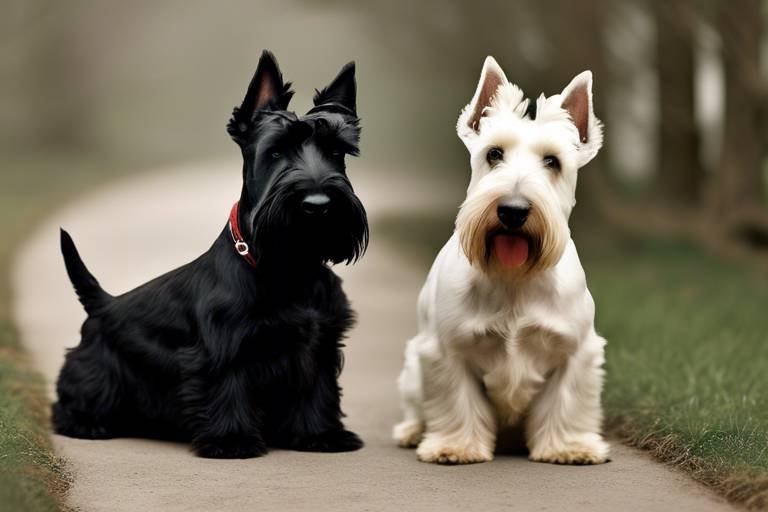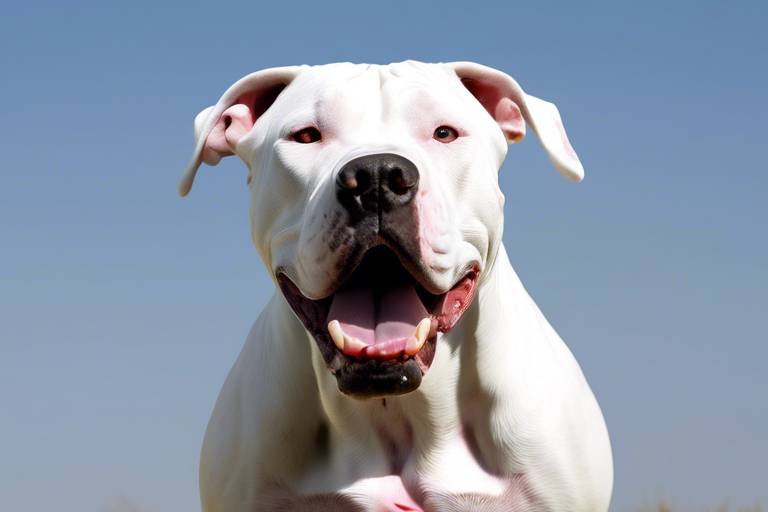The Personality Traits of the German Shepherd
German Shepherds are not just dogs; they are a unique blend of personality traits that make them one of the most beloved breeds in the world. Their intelligence, loyalty, and versatility are just the tip of the iceberg when it comes to what makes them special. As you delve into the personality of a German Shepherd, you’ll find that they are more than just pets; they are family members, protectors, and even partners in various working roles. This article explores these distinctive traits, shedding light on why they are so cherished by many.
When it comes to intelligence, German Shepherds are at the top of the class. They are known for their quick learning abilities, making them incredibly trainable. Owners often find that with just a few repetitions, their furry friends can master commands and even perform tricks. This remarkable intelligence is not only beneficial for obedience training but also for more complex tasks, such as search and rescue operations. Imagine having a dog that can learn to assist in emergencies or even help with daily chores! Their eagerness to please and ability to understand human commands make them a favorite among trainers and families alike.
The loyalty of a German Shepherd is something to behold. These dogs form deep, unbreakable bonds with their families, often becoming fiercely protective of their loved ones. They are not just companions; they are guardians, always alert and ready to defend their territory. This loyalty translates into a strong attachment, often leading them to follow their owners everywhere. Have you ever experienced that feeling of having a shadow? That’s what it’s like living with a German Shepherd!
One of the standout features of German Shepherds is their natural protective instincts. They possess an innate ability to sense danger, making them ideal watchdogs. With their keen senses and courageous demeanor, they are always on the lookout for potential threats. This protective nature not only makes them excellent guardians but also adds an extra layer of security to any home. However, it’s important to channel this instinct correctly through proper training and socialization.
To ensure that these protective instincts don't turn into over-protectiveness, early socialization is crucial. Exposing German Shepherds to various environments, people, and other animals helps them develop balanced behavior. Think of socialization as a way to broaden their horizons! A well-socialized German Shepherd is confident and friendly, making them a joy to be around.
German Shepherds exhibit various signs of attachment that can enhance the owner-dog relationship. For instance, you might notice your dog following you from room to room or displaying signs of anxiety when you leave. Understanding these behaviors can help you respond appropriately, fostering a deeper bond. After all, it’s all about communication, right?
Despite their serious appearance, German Shepherds are incredibly playful and energetic. They thrive on regular exercise and playtime, which are essential for keeping them physically and mentally stimulated. Think of them as a bundle of energy that needs to be channeled! Without adequate activity, they can become bored and develop behavioral issues. So, whether it’s a game of fetch, a long walk, or even agility training, keeping them active is key to a happy German Shepherd.
German Shepherds are surprisingly adaptable, thriving in various living situations. Whether you live in a bustling city apartment or a spacious rural home, these dogs can adjust to your lifestyle. Their flexibility makes them suitable for many families, as they can easily fit into different environments. However, it’s essential to provide them with enough space to move around and play. After all, a happy dog is a well-exercised dog!
These dogs typically get along well with children, making them excellent family pets. Their protective nature, combined with a playful disposition, allows them to be loving companions for kids. Imagine a dog that not only watches over your little ones but also engages in their games! This dual role of protector and playmate is one of the reasons why families adore German Shepherds.
German Shepherds excel in various working roles, including police, search and rescue, and service dogs. Their intelligence and versatility enable them to perform tasks effectively and efficiently. It’s fascinating to think about how these dogs can be trained to save lives or assist those in need. Their contributions to society are invaluable, showcasing their remarkable abilities beyond just being pets.
Understanding the health considerations of German Shepherds is vital for prospective owners. Being aware of common health issues, such as hip dysplasia and degenerative myelopathy, can aid in providing the best care for these dogs. Regular vet check-ups, a balanced diet, and proper exercise can significantly enhance their quality of life and longevity. Remember, a healthy dog is a happy dog!
- What is the average lifespan of a German Shepherd? Generally, German Shepherds live between 9 to 13 years.
- Are German Shepherds good with kids? Yes, they are known to be very family-friendly and protective of children.
- How much exercise do German Shepherds need? They require at least 1-2 hours of exercise daily.
- Do German Shepherds shed a lot? Yes, they are known to shed, particularly during seasonal changes.
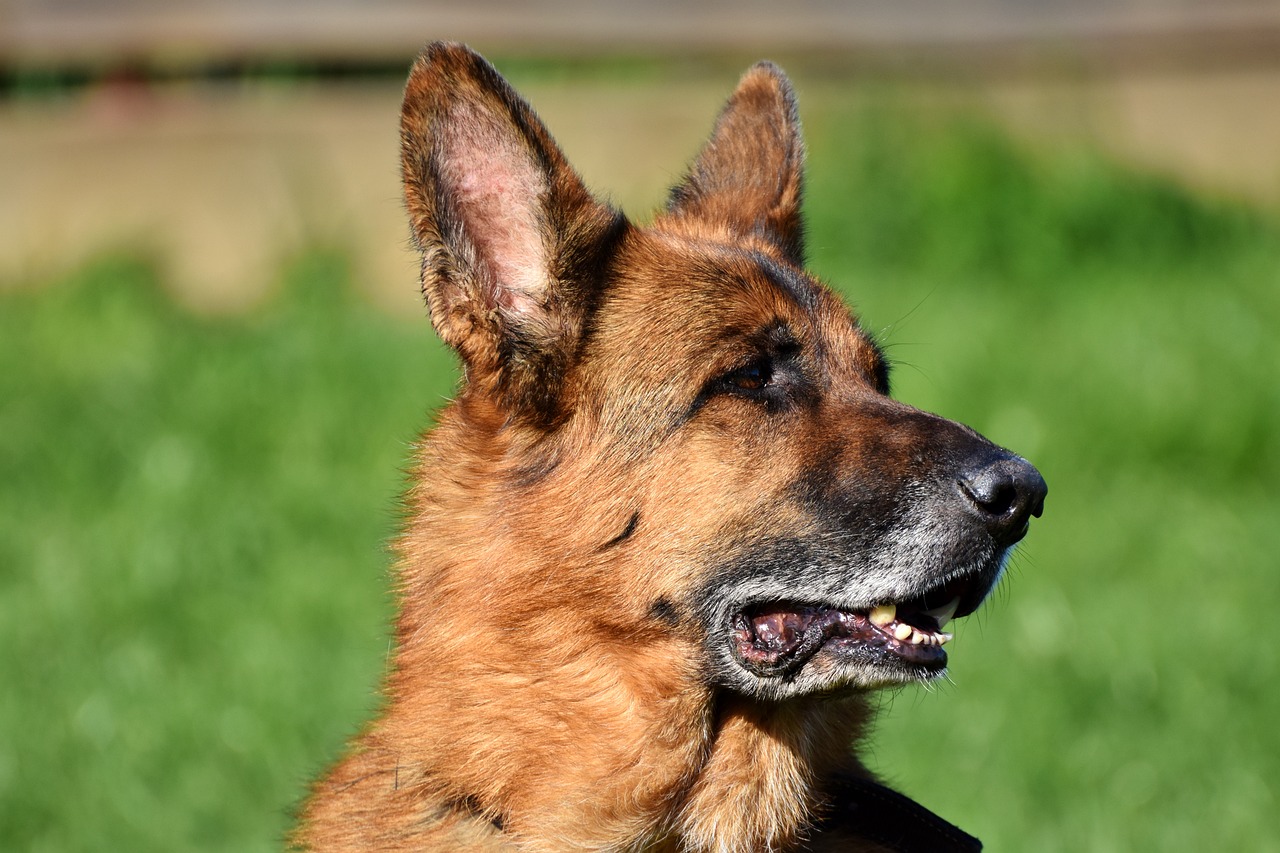
Intelligence and Trainability
German Shepherds are renowned for their high intelligence, making them one of the most trainable dog breeds in the world. Imagine having a furry companion that can not only understand your commands but also anticipate your needs! This remarkable trait is largely due to their strong desire to please their owners and their innate curiosity. When you train a German Shepherd, it’s like unlocking a treasure chest of potential; the more you invest in their education, the more you’ll be amazed at what they can achieve.
One of the key aspects of their intelligence is their ability to learn commands quickly. In fact, studies have shown that German Shepherds can learn a new command in as little as five repetitions, which is significantly faster than many other breeds. This rapid learning ability makes them ideal candidates for various training programs, whether it’s basic obedience, advanced agility, or even specialized tasks like search and rescue. With the right approach, you can turn your German Shepherd into a well-mannered and obedient companion.
Training a German Shepherd can be a rewarding experience, but it’s important to use positive reinforcement techniques. These dogs respond exceptionally well to praise, treats, and playtime, which makes the training process not only effective but also enjoyable. Here are some tips to keep in mind when training your German Shepherd:
- Start Early: Begin training as soon as you bring your puppy home. Early socialization and training are crucial for developing a well-rounded dog.
- Be Consistent: Use the same commands and cues consistently to avoid confusing your dog.
- Keep Sessions Short: German Shepherds have a short attention span, so keep training sessions to about 10-15 minutes.
- Make it Fun: Incorporate games and play into training to keep your dog engaged and motivated.
Furthermore, their intelligence also means they require mental stimulation. Without it, they can become bored and exhibit destructive behaviors. Engaging them in puzzle toys, obedience classes, or even dog sports can help channel their energy and intellect into positive activities. Think of it this way: a bored German Shepherd is like a child left unattended in a candy store—chaotic and mischievous! So, keep their minds active to prevent any unwanted surprises.
In conclusion, the intelligence and trainability of German Shepherds make them exceptional companions for families and individuals alike. Their eagerness to learn, combined with their loyalty and protective nature, creates a unique bond that is both rewarding and fulfilling. Whether you’re looking to train them for a specific task or simply want a well-behaved pet, investing time in their training will yield incredible results.
Q: How long does it take to train a German Shepherd?
A: Training duration varies, but with consistent practice and positive reinforcement, you can see significant progress within a few weeks.
Q: Are German Shepherds good for first-time dog owners?
A: Yes, they can be great for first-time owners, provided you are willing to invest time in training and socialization.
Q: Do German Shepherds require a lot of exercise?
A: Absolutely! They are energetic dogs that need regular exercise to stay healthy and happy.
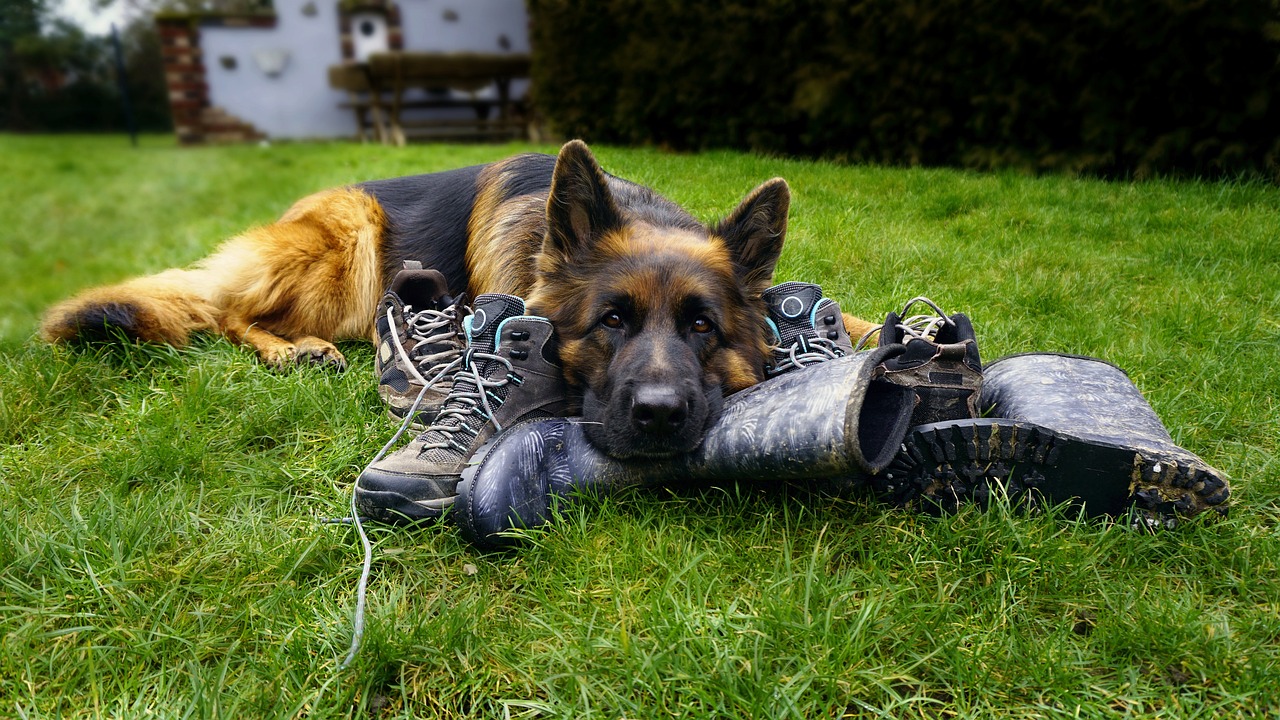
Loyalty and Bonding
When it comes to loyalty, German Shepherds are like the steadfast oak tree in a storm—unwavering and strong. Their loyalty is not just a trait; it's a way of life. These dogs have an innate ability to form deep bonds with their families, often treating them as their pack. This bond is built on trust, companionship, and mutual respect. Imagine coming home after a long day at work, and there they are, tail wagging, eyes filled with joy, as if you were the most important person in the world. That's the magic of a German Shepherd's loyalty.
One of the most remarkable aspects of their loyalty is their protective nature. German Shepherds are known for their instinct to guard their loved ones. This protective instinct can manifest in various ways, from barking at strangers to positioning themselves between their owner and a perceived threat. They are naturally alert, which makes them excellent watchdogs. However, this protective nature also requires responsible ownership. It's essential to ensure that they are well-socialized to distinguish between a real threat and a harmless visitor.
To foster a strong bond with your German Shepherd, it's crucial to engage in activities that promote interaction and trust. Regular training sessions, playtime, and even simple daily routines can strengthen this relationship. They thrive on positive reinforcement, so rewarding them for good behavior not only helps them learn but also deepens your connection. Here are some effective ways to enhance loyalty and bonding:
- Training Together: Consistent training helps establish you as the leader and builds trust.
- Quality Time: Spend time playing fetch or going for walks—these moments are vital for bonding.
- Positive Reinforcement: Use treats and praise to encourage good behavior, reinforcing their loyalty to you.
Understanding the signs of attachment in German Shepherds can further enhance the owner-dog relationship. These dogs often follow their owners around the house, a behavior that signifies their desire to be close and involved. If you notice your German Shepherd becoming anxious when you leave, it’s a clear indication of their attachment. Such behaviors can be managed with gradual desensitization and positive reinforcement, ensuring your dog feels secure even in your absence.
In summary, the loyalty and bonding of German Shepherds are what make them not just pets, but true family members. Their unwavering loyalty, protective instincts, and eagerness to bond create a unique companionship that many dog owners cherish. When you invest time and love into nurturing this relationship, you will find that your German Shepherd will be your most loyal friend, always ready to stand by your side through thick and thin.
Q: How can I strengthen my bond with my German Shepherd?
A: Engage in regular training, spend quality time together, and use positive reinforcement to build trust and loyalty.
Q: Are German Shepherds good with children?
A: Yes, they are generally very good with children, provided they are properly socialized and trained from a young age.
Q: What should I do if my German Shepherd shows signs of separation anxiety?
A: Gradually desensitize them to your absence, provide engaging toys, and consider consulting a professional trainer if necessary.
Protective Instincts
German Shepherds are famously known for their , which are deeply ingrained in their personality. This breed is not just a pet; they are natural guardians, always on alert and ready to spring into action at a moment's notice. Imagine having a loyal bodyguard who is not only fierce but also deeply affectionate towards your family. That's what you get with a German Shepherd!
These dogs possess an innate ability to sense danger, making them exceptional watchdogs. Their sharp senses and keen awareness of their surroundings allow them to detect potential threats long before we even notice. Whether it’s a stranger approaching your home or unusual sounds in the night, a German Shepherd is always on duty, ready to protect their loved ones. It's like having a built-in security system that comes with a wagging tail!
It's essential to understand that their protective nature is not just about being aggressive; it stems from a strong desire to keep their family safe. This instinct can be seen in various behaviors, such as:
- Alert barking at unfamiliar noises or people
- Positioning themselves between their owners and perceived threats
- Following their owners closely in new environments
However, while their protective instincts are a boon, they can also lead to challenges if not managed properly. Without proper training and socialization, a German Shepherd may become overly protective, which can manifest as aggression towards strangers or other animals. Therefore, early exposure to diverse situations, people, and pets is crucial. This helps them learn how to differentiate between real threats and everyday situations, striking a balance between their protective instincts and a friendly demeanor.
In summary, the protective instincts of German Shepherds are a double-edged sword. On one hand, they provide a sense of security and companionship; on the other, they require responsible ownership to ensure that these instincts are channeled positively. With the right training and socialization, you can cultivate a well-rounded dog that is both a loving family member and a vigilant protector. After all, who wouldn’t want a furry friend that’s got your back?
- Are German Shepherds good with children? Yes, they are generally very good with children and can be protective and playful.
- How much exercise do German Shepherds need? They require a significant amount of exercise, typically at least 1-2 hours a day.
- Can German Shepherds be aggressive? They can be if not properly trained and socialized, but with the right guidance, they are typically friendly and approachable.
- What is the average lifespan of a German Shepherd? The average lifespan is around 10-13 years, depending on health and care.
Socialization Needs
Socialization is a crucial aspect of raising a well-rounded German Shepherd. These dogs are naturally protective, which can sometimes lead to overly cautious or aggressive behavior if they are not properly socialized from a young age. Think of socialization as a form of education for your German Shepherd; it’s about exposing them to various environments, people, and other animals to help them develop balanced behavior. Just like humans, dogs thrive on experiences, and the more diverse their experiences, the more adaptable and confident they become.
Early socialization should begin as soon as you bring your German Shepherd puppy home. This period is critical, as puppies are particularly receptive to new experiences between the ages of 3 and 14 weeks. During this time, it’s important to introduce them to different sounds, sights, and smells. Take them on car rides, visit dog parks, and invite friends over to meet your furry companion. The goal is to create positive associations with a variety of situations, which can prevent fear-based reactions later in life.
Moreover, enrolling your German Shepherd in puppy classes can be incredibly beneficial. These classes not only provide basic obedience training but also offer controlled environments for your dog to interact with other dogs and people. This interaction is vital, as it teaches them how to communicate and behave appropriately in social settings. Remember, a well-socialized German Shepherd is more likely to become a confident and well-adjusted adult dog.
In addition to early exposure, ongoing socialization is essential throughout your dog's life. Regular encounters with new experiences will reinforce their training and help them remain adaptable. Here are some effective ways to maintain socialization:
- Frequent visits to dog parks where they can meet and play with other dogs.
- Participating in group training classes to enhance their obedience and social skills.
- Taking them on various outings, such as trips to pet-friendly stores or community events.
Ultimately, investing time in socializing your German Shepherd is a rewarding endeavor that pays off in their behavior and temperament. A well-socialized dog is not only a joy to have around but also a safer companion, as they are less likely to react negatively to new situations. So, roll up your sleeves, get out there, and start socializing your furry friend!
- What is the best age to start socializing my German Shepherd?
It’s best to start socializing your German Shepherd puppy as early as 3 weeks old and continue until they are around 14 weeks old. - How can I tell if my dog is well-socialized?
A well-socialized dog will be comfortable around new people, other animals, and different environments without showing signs of fear or aggression. - What should I do if my dog shows fear during socialization?
Take a step back and go at your dog’s pace. Gradually introduce them to new experiences and always ensure they have positive associations.
Signs of Attachment
German Shepherds are not just dogs; they are loyal companions that form deep emotional connections with their human families. Understanding the can significantly enhance the bond between you and your furry friend. For instance, you might notice your German Shepherd following you around the house, a clear indication that they want to be near you. This behavior is akin to a child seeking comfort from a parent; it reveals their need for closeness and security.
Another common sign of attachment is when your German Shepherd exhibits anxiety during your absence. You may observe them whining, pacing, or even chewing on furniture when left alone. This behavior can be likened to a child feeling anxious on the first day of school. They thrive on your presence, and any separation can lead to feelings of distress. Recognizing these signs early on can help you address their needs and provide comfort during times of separation.
Moreover, German Shepherds often display affection through physical contact. They may lean against you, rest their head on your lap, or nuzzle you with their nose. These gestures are not just cute; they are their way of saying, "I trust you and feel safe with you." Just like a warm hug from a loved one, these moments of closeness reinforce the bond you share.
Additionally, German Shepherds may become protective of their owners, especially in unfamiliar situations. This instinctive behavior is a testament to their loyalty and attachment. Imagine having a best friend who stands by you during tough times; that’s how your German Shepherd feels about you. They are always on alert, ready to defend their family, which is a remarkable quality of this breed.
To further illustrate the signs of attachment, here’s a quick rundown:
- Following you around the house
- Displaying anxiety when you leave
- Showing physical affection through leaning or nuzzling
- Being protective in unfamiliar situations
In conclusion, recognizing these signs of attachment not only enhances your understanding of your German Shepherd's emotional needs but also helps you become a better owner. By responding to these behaviors with love and attention, you can cultivate a lasting bond that both you and your dog will cherish for years to come.
Q: How can I strengthen my bond with my German Shepherd?
A: Spend quality time together through play, training, and regular exercise. Positive reinforcement and affection will also help strengthen your bond.
Q: What should I do if my German Shepherd shows signs of separation anxiety?
A: Gradually acclimate your dog to being alone by leaving them for short periods and gradually increasing the time. Providing a safe space and engaging toys can also help ease their anxiety.
Q: Are German Shepherds good with children?
A: Yes, German Shepherds are generally good with children. Their protective nature and playful disposition make them loving companions, but supervision is essential to ensure safety for both the dog and the child.
Q: How much exercise do German Shepherds need?
A: German Shepherds require a significant amount of exercise, typically 1-2 hours a day. Activities like walking, running, and playing fetch are excellent ways to keep them physically and mentally stimulated.
Playfulness and Energy
When you think of a German Shepherd, you might picture a serious-looking dog, but let me tell you, there's so much more beneath that majestic exterior! These dogs are not just about work and protection; they are also incredibly playful and full of energy. Imagine a child who just can’t wait to go outside and play—that’s the essence of a German Shepherd when it comes to fun and games. They thrive on activity, and this is crucial for their overall well-being.
German Shepherds have a natural zest for life that makes them excellent companions for active families. They love engaging in a variety of activities, whether it’s a game of fetch, a long run, or even agility training. Regular physical exercise is not just a recommendation; it’s a necessity! A tired German Shepherd is a happy German Shepherd, and keeping them physically active can significantly reduce the chances of behavioral issues that stem from pent-up energy. Think of it like this: a child cooped up inside all day might get restless and cranky, right? The same goes for these intelligent canines.
To keep your German Shepherd entertained and mentally stimulated, consider incorporating a mix of physical and mental exercises. Here are some engaging activities that can help:
- Fetch: A classic game that never gets old! It's a great way for your dog to burn off energy while also honing their retrieval skills.
- Agility Training: Set up an obstacle course in your backyard or at a local park. This not only challenges their physical abilities but also keeps their minds sharp.
- Hide and Seek: This fun game can be played indoors or outdoors. It encourages your dog to use their nose and brain to find you or hidden treats.
- Interactive Toys: Invest in puzzle toys that require your dog to think and problem-solve to get to the treats inside.
Moreover, their playful nature is not just limited to their interactions with humans. German Shepherds often enjoy the company of other dogs, making socialization a key factor in their playtime. They can engage in rough-and-tumble play with their canine friends, which is not only fun but also helps them learn important social skills. However, it’s essential to monitor their play to ensure it remains friendly and doesn’t escalate into aggression.
In summary, the playfulness and energy of German Shepherds make them a joy to have around. Their need for regular exercise and mental stimulation means that they thrive in active households where they can be part of the family fun. So, if you’re considering bringing one of these incredible dogs into your life, be prepared for a whirlwind of excitement and companionship!
Q: How much exercise does a German Shepherd need daily?
A: German Shepherds typically require at least 1-2 hours of exercise each day, which can include walks, playtime, and training sessions.
Q: Can German Shepherds be left alone for long periods?
A: While they can tolerate being alone for a few hours, German Shepherds thrive on companionship. Long periods of solitude can lead to anxiety and behavioral issues.
Q: Are German Shepherds good with children?
A: Yes! German Shepherds are generally good with children, especially when they are raised together. Their protective nature makes them excellent family dogs.
Q: What are some signs that my German Shepherd needs more exercise?
A: Signs include excessive barking, destructive behavior, restlessness, and hyperactivity. If your dog seems bored or is acting out, it might be time for more playtime!
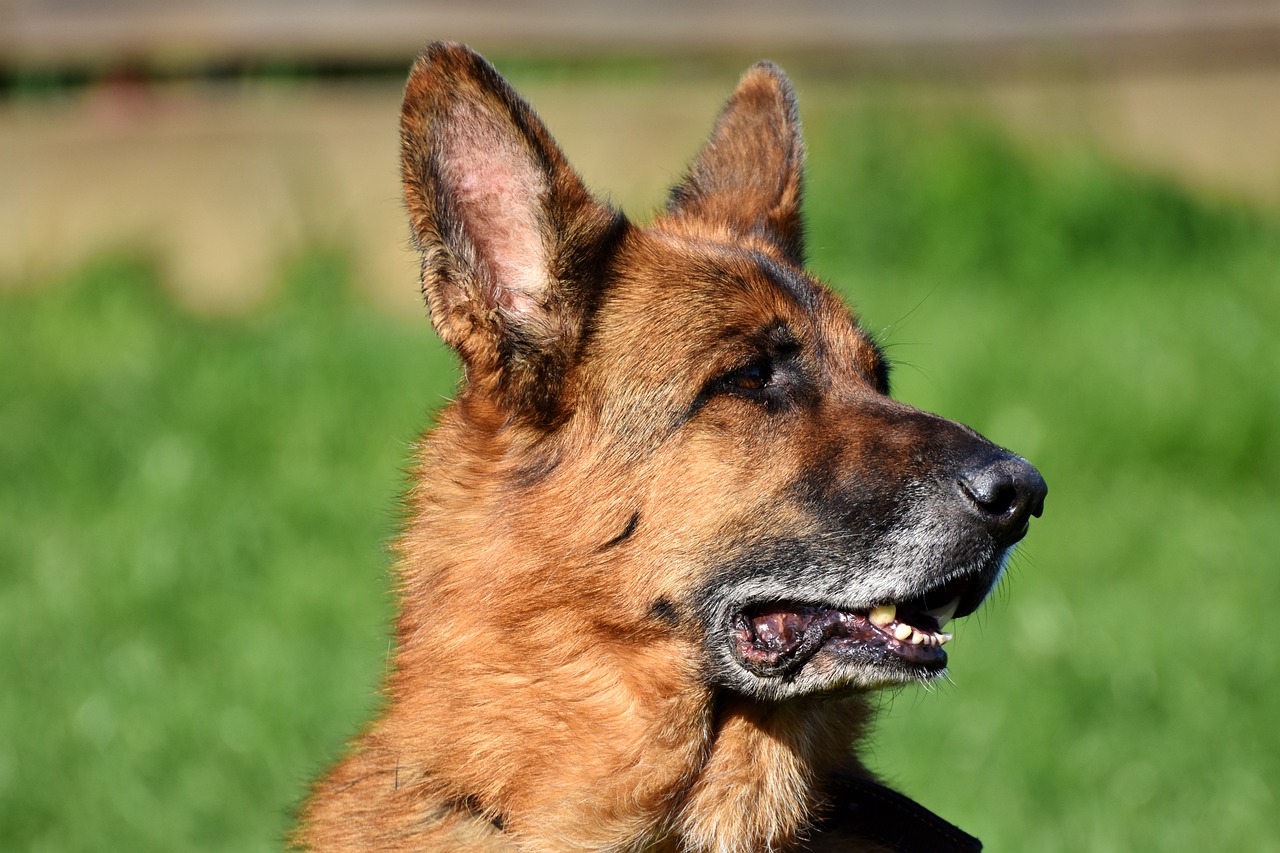
Adaptability
One of the most remarkable traits of German Shepherds is their . These dogs can thrive in a variety of living situations, which makes them a popular choice for many families. Whether you live in a bustling city apartment or a spacious rural home, German Shepherds can adjust to your lifestyle with relative ease. Their flexible nature allows them to fit into different environments, as long as their physical and emotional needs are met.
In urban settings, German Shepherds can adapt to smaller living spaces, provided they receive enough exercise and mental stimulation. Daily walks and play sessions become essential in keeping their energy levels in check. On the other hand, in more rural areas, they can enjoy the freedom of wide-open spaces, which allows them to explore and engage in natural behaviors. This adaptability not only makes them suitable companions for various living situations but also enriches their lives.
Moreover, their ability to adjust extends beyond just physical environments. German Shepherds are also known for their social adaptability. With proper training and socialization, they can interact well with other animals and people. This aspect is crucial, especially if you have children or other pets at home. Here’s a quick look at how they adapt in different scenarios:
| Living Environment | Adaptation Needs |
|---|---|
| City Apartment | Daily exercise, mental stimulation, and socialization. |
| Suburban Home | Moderate exercise, playtime in the yard, and family interaction. |
| Rural Setting | Access to open spaces, regular exercise, and exploration opportunities. |
German Shepherds are also known for their versatility in various roles, whether as family pets or working dogs. Their intelligence allows them to learn new tasks quickly, making them suitable for various jobs, including therapy, search and rescue, and even service roles. This adaptability to different functions showcases their unique ability to integrate into various aspects of human life.
Finally, it's worth noting that while German Shepherds are adaptable, they still require consistent training and socialization to thrive. Early exposure to different environments, experiences, and people is essential in shaping their behavior. When raised in a nurturing environment that encourages exploration and interaction, German Shepherds grow into well-rounded companions who can adapt to almost any situation.
- Can German Shepherds live in apartments?
Yes, with proper exercise and mental stimulation, German Shepherds can thrive in apartment living. - How much exercise do they need?
German Shepherds require at least 1-2 hours of exercise daily to stay healthy and happy. - Are they good with children?
Yes, they are generally good with children and can be protective and playful companions. - Do they adapt well to new environments?
Absolutely! German Shepherds are known for their adaptability to different living situations and environments.
Family Compatibility
When it comes to family compatibility, German Shepherds truly shine. These dogs are not just pets; they become integral members of the family unit. Their protective nature and playful demeanor create a perfect balance that can enrich family life in countless ways. Imagine a dog that can both safeguard your home and engage in spirited games of fetch with your kids—this is precisely what a German Shepherd brings to the table.
One of the most remarkable traits of German Shepherds is their ability to bond with children. They are generally very patient and gentle, making them excellent companions for kids. However, it’s important to remember that their size and energy levels require some supervision during playtime. But fear not! With proper training and socialization, these dogs learn to be mindful of their strength. They often display a natural instinct to protect the younger members of the family, which can provide parents with peace of mind.
In fact, many families find that their German Shepherds become very attached to their children, often following them around the house. This attachment can manifest in various ways, such as:
- Being a constant shadow, always nearby.
- Displaying excitement when the kids come home from school.
- Engaging in playful antics that keep everyone entertained.
Moreover, their adaptability means they can thrive in different living environments, whether in a bustling city or a quiet suburb. They can adjust to family routines, making them suitable for both active households and those that enjoy a more laid-back lifestyle. Just remember, these dogs do require regular exercise to keep their energy levels in check. A tired German Shepherd is a happy one!
In summary, if you’re considering adding a German Shepherd to your family, you’re making a choice that can lead to a lifelong friendship filled with love, loyalty, and laughter. With the right training and socialization, they can seamlessly integrate into your family dynamic, providing both companionship and protection.
Here are some common questions prospective German Shepherd owners might have:
- Are German Shepherds good with children? Yes, they are generally very good with kids and can be protective and playful.
- Do they require a lot of exercise? Yes, German Shepherds need regular physical and mental stimulation to stay happy and healthy.
- How do I socialize my German Shepherd? Early exposure to various environments, people, and other animals is key to their socialization.
Working Roles
German Shepherds are not just your average pet; they are true working champions! Their remarkable blend of intelligence, strength, and versatility makes them ideal candidates for a variety of demanding roles. From serving as police dogs to assisting in search and rescue missions, these dogs thrive when they have a job to do. Their ability to quickly learn commands and perform complex tasks is nothing short of impressive. Imagine having a partner who can not only follow your lead but also anticipate your needs; that’s the magic of a German Shepherd!
One of the most well-known roles for German Shepherds is in law enforcement. Their keen sense of smell and acute hearing allow them to excel in detecting drugs and explosives. They are often seen working alongside police officers, searching for evidence, and even apprehending suspects. This partnership not only showcases their physical capabilities but also their dedication to serving and protecting the community.
In addition to police work, German Shepherds are invaluable in search and rescue operations. Their natural instincts and training enable them to locate missing persons in various environments, whether it’s through dense forests or urban landscapes. The bond they form with their handlers is crucial, as it enhances their ability to work as a cohesive unit. This relationship is built on trust and communication, allowing them to navigate challenging situations effectively.
Moreover, German Shepherds are often employed as service dogs for individuals with disabilities. They can be trained to assist with tasks such as guiding the visually impaired, alerting deaf individuals to sounds, or providing support for those with mobility issues. Their empathetic nature and willingness to help make them exceptional companions for those in need. It's fascinating to see how these dogs can transform lives, offering not just assistance but also emotional support.
To give you a better understanding of the various roles German Shepherds excel in, here’s a brief overview:
| Working Role | Description |
|---|---|
| Police Dogs | Trained to assist law enforcement in detecting drugs, explosives, and apprehending suspects. |
| Search and Rescue Dogs | Specialized in locating missing persons in various terrains, utilizing their keen senses. |
| Service Dogs | Trained to assist individuals with disabilities, providing support and companionship. |
| Therapy Dogs | Provide emotional support and comfort in hospitals, schools, and nursing homes. |
In summary, the German Shepherd’s versatility in working roles highlights their exceptional capabilities and adaptability. They thrive on challenges and are happiest when they have a purpose. So, if you’re considering bringing a German Shepherd into your life, be prepared to engage them in meaningful activities that tap into their natural talents. Your furry friend will not only be a loyal companion but also a dedicated worker, ready to tackle any task with enthusiasm!
- What makes German Shepherds suitable for working roles?
German Shepherds possess high intelligence, strong work ethic, and the ability to learn quickly, making them ideal for various tasks. - Are German Shepherds good family pets?
Yes, they are known for their loyalty and protective nature, making them great companions for families with children. - How much exercise do German Shepherds need?
They require regular exercise and mental stimulation to keep them happy and prevent behavioral issues. - Can German Shepherds be trained for multiple roles?
Absolutely! Their versatility allows them to be trained for various tasks, from service to search and rescue.
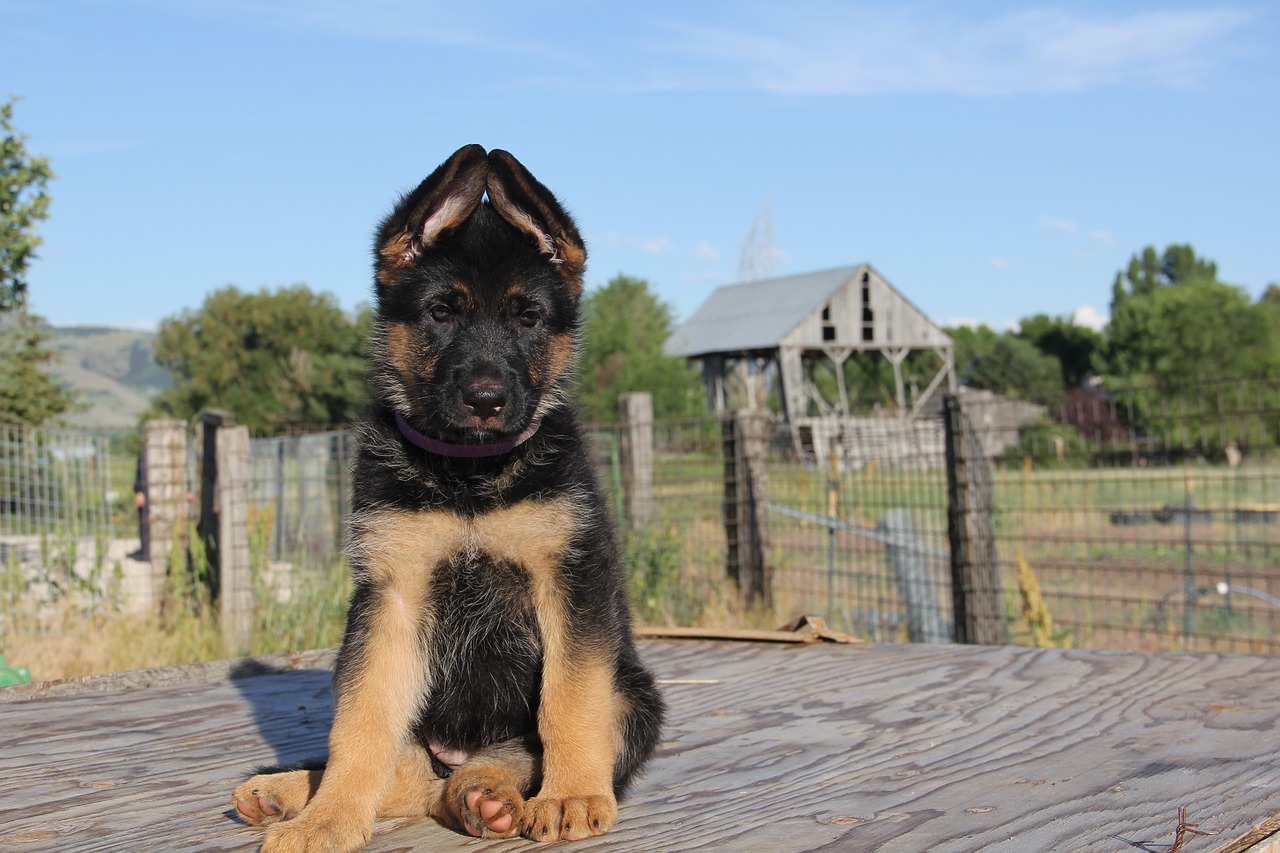
Health Considerations
When it comes to the health of your beloved German Shepherd, being informed and proactive can make all the difference. These dogs, while generally robust, are prone to certain health issues that owners should be aware of. Understanding these conditions not only helps in early detection but also ensures that you can provide the best care possible. Among the most common concerns for German Shepherds are hip dysplasia, elbow dysplasia, and degenerative myelopathy. These conditions can significantly impact their quality of life, so regular veterinary check-ups are essential.
Hip dysplasia, for instance, is a genetic condition where the hip joint doesn't fit snugly into the hip socket. This misalignment can lead to arthritis and discomfort as the dog ages. Similarly, elbow dysplasia affects the elbow joint and can result in lameness and pain. Both these conditions can be managed with proper veterinary care, but awareness is crucial. Additionally, degenerative myelopathy is a progressive disease affecting the spinal cord, leading to mobility issues. While there’s currently no cure, early diagnosis can help manage symptoms and improve your dog’s quality of life.
To help ensure your German Shepherd remains healthy, consider the following health tips:
- Regular Vet Visits: Schedule annual check-ups to catch any potential health issues early.
- Balanced Diet: Provide a nutritious diet tailored to their age, weight, and activity level to maintain a healthy weight and prevent obesity.
- Exercise: Engage in regular physical activity to keep them fit and mentally stimulated.
- Genetic Testing: If possible, choose a reputable breeder who conducts health screenings for hereditary conditions.
Moreover, it's essential to keep an eye on their dental health. Dental diseases can lead to more severe health issues if left untreated. Regular brushing and dental check-ups can help maintain their oral hygiene. German Shepherds are also susceptible to certain skin conditions, so monitoring their skin for any unusual lumps or irritations is vital. A healthy coat is often indicative of a healthy dog.
In summary, while German Shepherds can be prone to specific health issues, being proactive about their care can lead to a long, happy life. Regular veterinary care, a balanced diet, and proper exercise are key components in keeping your furry friend in tip-top shape. Remember, the more you know, the better you can care for your loyal companion!
1. What is the average lifespan of a German Shepherd?
The average lifespan of a German Shepherd is typically between 9 to 13 years, depending on genetics and overall health care.
2. How can I prevent hip dysplasia in my German Shepherd?
While you can't completely prevent hip dysplasia, choosing a reputable breeder who screens for genetic conditions, maintaining a healthy weight, and ensuring regular exercise can significantly reduce the risk.
3. Are German Shepherds prone to any specific allergies?
Yes, German Shepherds can be prone to skin allergies, food allergies, and environmental allergies. Keeping an eye on any unusual itching or skin irritations and consulting with a vet can help manage these issues.
4. What vaccinations do German Shepherds need?
German Shepherds should receive core vaccinations such as rabies, distemper, parvovirus, and adenovirus, along with any additional vaccinations recommended by your veterinarian based on your location and lifestyle.
5. How often should I exercise my German Shepherd?
German Shepherds require a significant amount of exercise—at least 1 to 2 hours a day. This can include walks, playtime, and mental stimulation activities to keep them happy and healthy.
Frequently Asked Questions
- What makes German Shepherds highly trainable?
German Shepherds are known for their exceptional intelligence and eagerness to please. This combination allows them to learn commands quickly and effectively. Their ability to understand and respond to human cues makes training a rewarding experience for both the dog and the owner.
- Are German Shepherds good family pets?
Absolutely! German Shepherds are incredibly loyal and protective, making them excellent companions for families. They often form strong bonds with children and can be playful and affectionate, ensuring a loving environment for everyone in the household.
- How important is socialization for German Shepherds?
Socialization is crucial for German Shepherds to develop balanced behavior. Early exposure to different people, environments, and other animals helps them become well-adjusted adults. This process can reduce any overly protective tendencies and ensure they are comfortable in various situations.
- What are some signs of attachment in German Shepherds?
German Shepherds often show their attachment through behaviors like following their owners closely, seeking physical contact, or displaying anxiety when separated. Recognizing these signs can help owners understand their dog's needs and foster a stronger bond.
- Do German Shepherds need a lot of exercise?
Yes, they do! German Shepherds are energetic dogs that require regular exercise to stay healthy and happy. Daily walks, playtime, and mental stimulation are essential to prevent behavioral issues and keep them engaged.
- Can German Shepherds adapt to apartment living?
Yes, German Shepherds can adapt to apartment living as long as they receive adequate exercise and mental stimulation. Their adaptability allows them to thrive in various environments, but it's crucial to ensure they have enough opportunities to burn off energy.
- What working roles do German Shepherds excel in?
German Shepherds excel in various working roles, including police work, search and rescue missions, and as service dogs. Their intelligence, versatility, and strong work ethic make them ideal candidates for these important tasks.
- What health issues should I be aware of with German Shepherds?
Common health issues in German Shepherds include hip dysplasia, elbow dysplasia, and certain genetic conditions. Being aware of these potential problems can help owners provide the best care and ensure a longer, healthier life for their furry friends.






